Before this pandemic, travelers could enjoy countless delicious experiences of local dishes in foreign countries every minute of every day the world over. With limited tourism available today, the hospitality, travel and culture sectors are suffering egregiously, and new online initiatives are popping up to try and put fresh dishes or bespoke cocktail experiences back on the table.
One such initiative is Delicious Experiences, an aptly named platform that connects foodies in one-on-one sessions with Michelin-starred restaurateurs, James Beard Award winners, bestselling cookbook authors, and other acclaimed culinary professionals. And it won’t break your budget.
“People are craving these kinds of global experiences,” says Inbal Baum, who founded Delicious Experiences with her husband, developer/consultant/entrepreneur, Tal Ater. “People want memorable, fun experiences. We’re creating the possibility for this.”
SEE ALSO: Delicious Israel: Off-The-Radar Tel Aviv Restaurant Picks To Start Off 2020
Indeed, social distancing and lockdown rules had a very sudden and substantial impact on many sectors. For the food and hospitality industries, typical after-work drinks, weekend get-togethers and dining out dates came to an abrupt halt.
“The pandemic sort of forced the hospitality industry to rethink the way we operate, the use of technology was underutilized and I think there will be an expansion of its use to build and create experiences and relationships,” says award-winning Singapore-based bartender Joseph Haywood, who teaches an online workshop on how to create signature cocktails.
For Baum, international travel to Israel was a key part of her company, Delicious Israel, which offers guided food tours around the country. Thinking how to pivot and save her business, she decided to go online with virtual food tours. (Those have proven popular.)
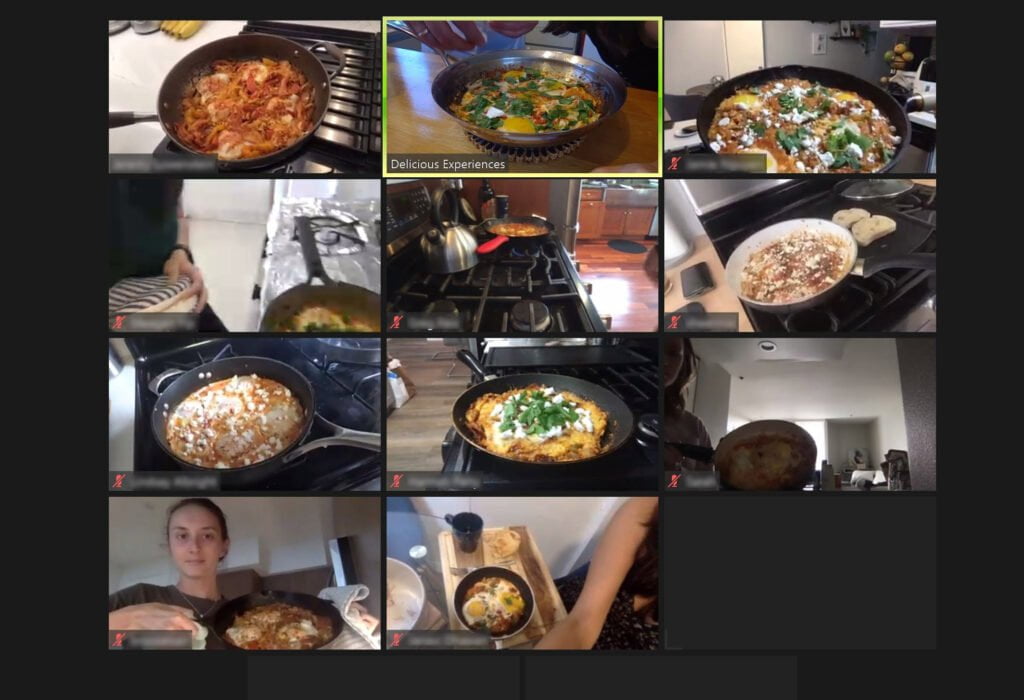
But the notion that the “internet world” is borderless, sparked the idea for the new Delicious Experiences foray. The platform launched in late May from Tel Aviv, but it always had its sights on the global audience.
“This is an online platform and we can offer mixology experiences out of Singapore, authentic cooking from Portugal, pasta making with chefs from Italy… We can have classes at all times,” says Baum.
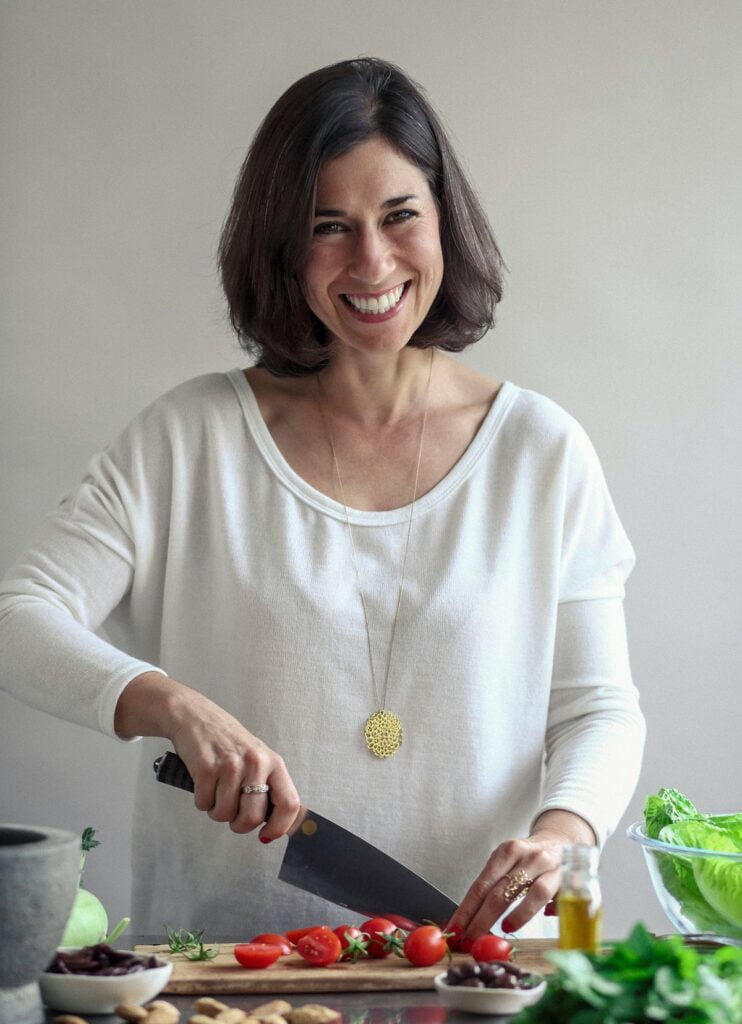
And it seems people want classes “at all times.” Online courses have surged in popularity since restrictions to stop the spread of the COVID-19 coronavirus pandemic became more widespread. Since March, web searches for online cooking classes, specifically, have shot up 300 percent, according to Google Trends.
People still want to feed their souls.
Sourdough bread, banana bread, meatloaf, strawberry daquiris, margaritas, homemade ice cream, challah bread and naan bread recipes top global searches between March and July, according to Google Trends.
You can say the world’s cuisine is a click away.
Some chefs, mixologists, food authors and sommeliers pivoted to teaching online classes as their main gig while others choose to donate the cost of an online workshop to humanitarian causes.
“The point of the Delicious Experiences class is that I’m there to coach you through the experience. I offer not just my expertise but my patience and my empathy. My goal is that you finish the class with more confidence in the kitchen than you had when you started. The cheesesteak is just the delicious vehicle for making that happen,” says chef Ari Miller, who offers a workshop on the platform dedicated to Philadelphia flavors including how to make soft pretzels and the popular sandwich made from thinly sliced pieces of beefsteak and melted cheese in a long hoagie roll.
“With many restaurants and bars experiencing temporary closures or a change to operations, I wanted to help the cocktail enthusiast still experience flavorful drinks, even if it is in the comfort of their own home,” mixologist Haywood tells NoCamels, about the craft cocktails class he offers.
Sign up for our free weekly newsletter
Subscribe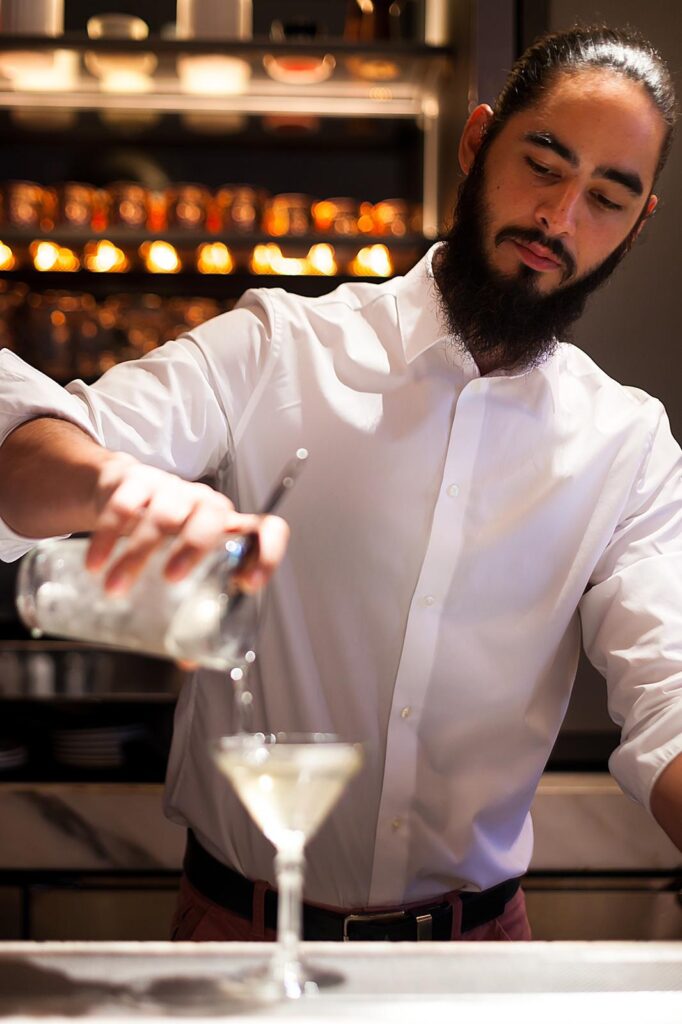
COVID-19 restrictions vary from city to city, country to country. But even as society is slowly reopening, individuals, corporate teams and communities are continuing to turn to digital courses and virtual tours.
After all, breaking bread together has always been part of the human story and is an important part of culture.
“People are open to new kinds of experiences online,” says Baum. “Zoom fatigue is not relevant to what we’re offering. You’re not just watching the screen, you’re active. When you’re in the kitchen cooking or sipping cocktails, you’re engaged. Even online, there is a feeling of togetherness even if you’re not physically there together.”
Miller, who honed his culinary skills in Tel Aviv, and now serves as executive chef of Musi (one of Eater’s Best New Restaurants in America) and Frizwit (home of the cheesesteak named Best in Philly), agrees that feeling togetherness online is possible.
“Togetherness is something that is created in different ways. Now, togetherness is a sense of community and that can be built virtually. It’s not new to the COVID-era but it’s more common now,” Miller tells NoCamels.
“You can make the same dish with friends all in their own homes and be together by sharing this meal. Samin Nosrat’s ‘The Big Lasagna’ is an excellent extreme example of that,” he says, referring to the American chef’s Instagram Live lasagna project in May that called on people to cook together online.
Online cooking classes lack the excitement of a restaurant or bar ambiance. For Haywood, the video conferencing technology still allows us to enjoy one another’s company and share good conversation over food.
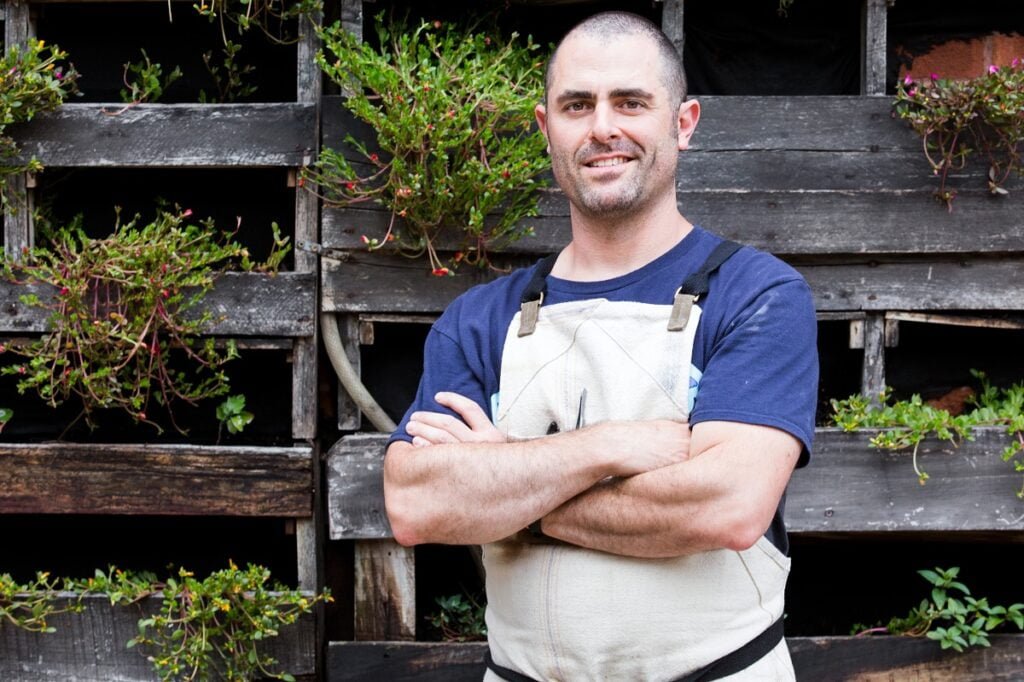
“I am a firm believer that the social aspect of restaurants and bars are just as important as the actual food and cocktails themselves. While many places have converted to delivery models for food and cocktails, it still misses that touch of personality. I think Delicious Experiences fills that gap, by not only pleasing the taste buds but giving the human interaction that we all want as well,” says Haywood.
Baum is not trying to replace the dining out experience. But she is sure the culinary platform she built is not a temporary alternative but rather a “kind of experience that is going to stay.”
Miller, who recently re-opened his restaurants in the US, agrees.
These online classes are “in response to the COVID-19 reality but with a vision that extends past it,” Miller tells NoCamels via email. “Even when travel resumes, this is still a fun, quick respite from daily life anywhere in the world, without having to hop on a plane for a whole vacation. It’s a Sunday afternoon with some friends. And you get to grow a bit as a cook. It’s not just about the food, it’s also the technique.”
SEE ALSO: Israel’s Only Food Tech Hub Has Something Cooking In The Kitchen
Indeed, online culinary classes allow people to experience foodie fun from around the world while adding techniques to their repertoire. And they support the chefs, mixologists and sommeliers who saw their industries in pieces.

Says Haywood: “So many industries have been hit extremely hard at this time, as a mixologist or any member of the hospitality industry it has been extremely humbling to see the amount of support for restaurants and bars by their local communities all around the world.”
Viva Sarah Press is a journalist and speaker. She writes and talks about the creativity and innovation taking place in Israel and beyond. www.vivaspress.com
Related posts

Rehabilitation Nation: Israeli Innovation On Road To Healing

Israeli High-Tech Sector 'Still Good' Despite Year Of War


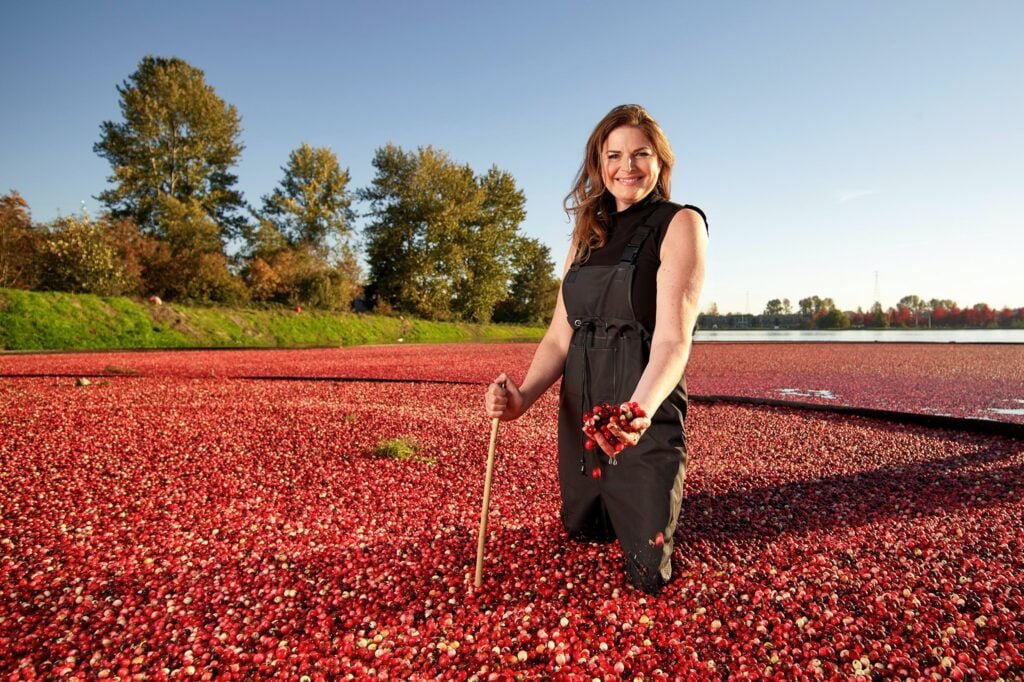


Facebook comments